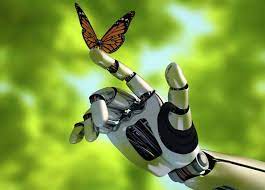The Benefits of AI in the Environmental Services Industry
Artificial intelligence (AI) has been making waves across a wide range of industries in recent years. From healthcare to finance, AI has been revolutionizing the way businesses operate and helping them achieve greater efficiency and cost savings. One industry that is particularly well-suited to benefit from AI is the environmental services sector. In this article, we’ll explore the ways in which AI can help the environmental services industry become more sustainable, efficient, and effective.
One of the primary benefits of AI in the environmental services industry is the ability to predict and prevent environmental disasters. For example, AI can be used to monitor changes in the climate and predict natural disasters such as floods, wildfires, and hurricanes. This can help governments and businesses to take proactive measures to prevent or mitigate the impact of these events. By using AI to monitor and analyse data, environmental services companies can also identify potential hazards and risks before they occur. This can help to prevent accidents and protect the environment.
Another way in which AI can benefit the environmental services industry is through the use of autonomous vehicles. Many environmental services companies rely on vehicles for tasks such as waste collection, street cleaning, and tree maintenance. By using autonomous vehicles, these tasks can be performed more efficiently and with less impact on the environment. Autonomous vehicles can also reduce the risk of accidents and improve worker safety.
AI can also help environmental services companies to better manage their resources. By analyzing data on energy consumption, water usage, and waste production, AI systems can identify areas where improvements can be made. For example, AI can be used to optimize waste collection routes, reducing the amount of time and fuel needed to collect waste. AI can also be used to identify energy-efficient solutions for buildings and facilities, reducing energy consumption and costs.

The use of AI in the environmental services industry can also help to improve the accuracy and speed of data analysis. Environmental services companies collect vast amounts of data on a daily basis, from weather patterns to air and water quality. By using AI to analyze this data, companies can gain valuable insights into trends and patterns that would be difficult or impossible to identify manually. This can help companies to make more informed decisions about resource allocation, environmental management, and risk prevention.
AI can also help to reduce the environmental impact of industrial processes. Many industrial processes generate large amounts of waste and emissions, which can have a significant impact on the environment. By using AI to optimise these processes, companies can reduce waste and emissions, while also improving efficiency and productivity. For example, AI can be used to monitor and optimize the use of resources such as water, energy, and raw materials. This can help to reduce waste and emissions, while also improving the bottom line.
Finally, the use of AI in the environmental services industry can help to improve public health and safety. Environmental services companies are responsible for managing a wide range of hazards, from hazardous waste to air and water pollution. By using AI to monitor and analyze data, these hazards can be identified and addressed before they become a threat to public health and safety. For example, AI can be used to monitor air quality in urban areas, identifying hotspots where pollution levels are particularly high. This information can be used to inform public policy and improve the quality of life for local residents.
The environmental services industry stands to benefit significantly from the use of AI. By using AI to predict and prevent environmental disasters, manage resources, optimize industrial processes, and improve public health and safety, environmental services companies can become more sustainable, efficient, and effective. As AI technology continues to evolve, we can expect to see even more benefits for the environmental services industry and the wider community.
However, it is important to note that the implementation of AI in the environmental services industry must be done carefully and with consideration for potential ethical and social implications. For example, the use of autonomous vehicles could lead to job losses in the industry, which could have a negative impact on the livelihoods of workers. It is important for companies to consider the social and ethical implications of AI implementation and take steps to mitigate any negative consequences.
Another potential challenge is the issue of data privacy and security. AI systems rely on large amounts of data to function effectively, and this data must be collected, stored, and processed in a secure and responsible manner. Companies must ensure that they are complying with relevant data protection laws and regulations, and that they are using the data in an ethical and transparent way.
Despite these challenges, the benefits of AI in the environmental services industry are clear. By using AI to improve efficiency, reduce waste, and protect the environment, companies can make a positive impact on the world while also improving their bottom line. As AI technology continues to evolve and become more sophisticated, we can expect to see even more benefits for the environmental services industry and the wider community.

Conclusion
The environmental services industry has a critical role to play in protecting the environment and promoting sustainability. The use of AI can help to improve the efficiency and effectiveness of the industry, while also reducing its impact on the environment. As we move towards a more sustainable future, it is clear that AI will be a key tool in achieving our goals. By embracing AI and using it in a responsible and ethical way, we can build a better future for ourselves and for generations to come.
In addition to the benefits discussed, the use of AI in the environmental services industry can also help to drive innovation and create new business opportunities. By embracing AI and using it to improve their operations, companies can differentiate themselves from their competitors and develop new revenue streams. For example, companies that develop AI-powered solutions for environmental monitoring or resource management could find themselves at the forefront of a rapidly growing market.
Furthermore, the use of AI can also help to build public trust in the environmental services industry. By using AI to monitor and report on environmental data, companies can demonstrate their commitment to transparency and accountability. This can help to build public trust and support for environmental initiatives, which in turn can help to drive positive change.
Overall, the benefits of AI in the environmental services industry are numerous and varied. From improving efficiency and reducing waste to protecting public health and safety, AI has the potential to transform the industry in numerous ways. However, it is important for companies to approach AI implementation with care and consideration, and to ensure that they are using the technology in a responsible and ethical way.
As we look to the future, it is clear that AI will play an increasingly important role in the environmental services industry. As the technology continues to evolve and become more sophisticated, we can expect to see even more benefits and opportunities arise. By embracing AI and using it to drive positive change, the environmental services industry can help to build a more sustainable and prosperous future for all.















